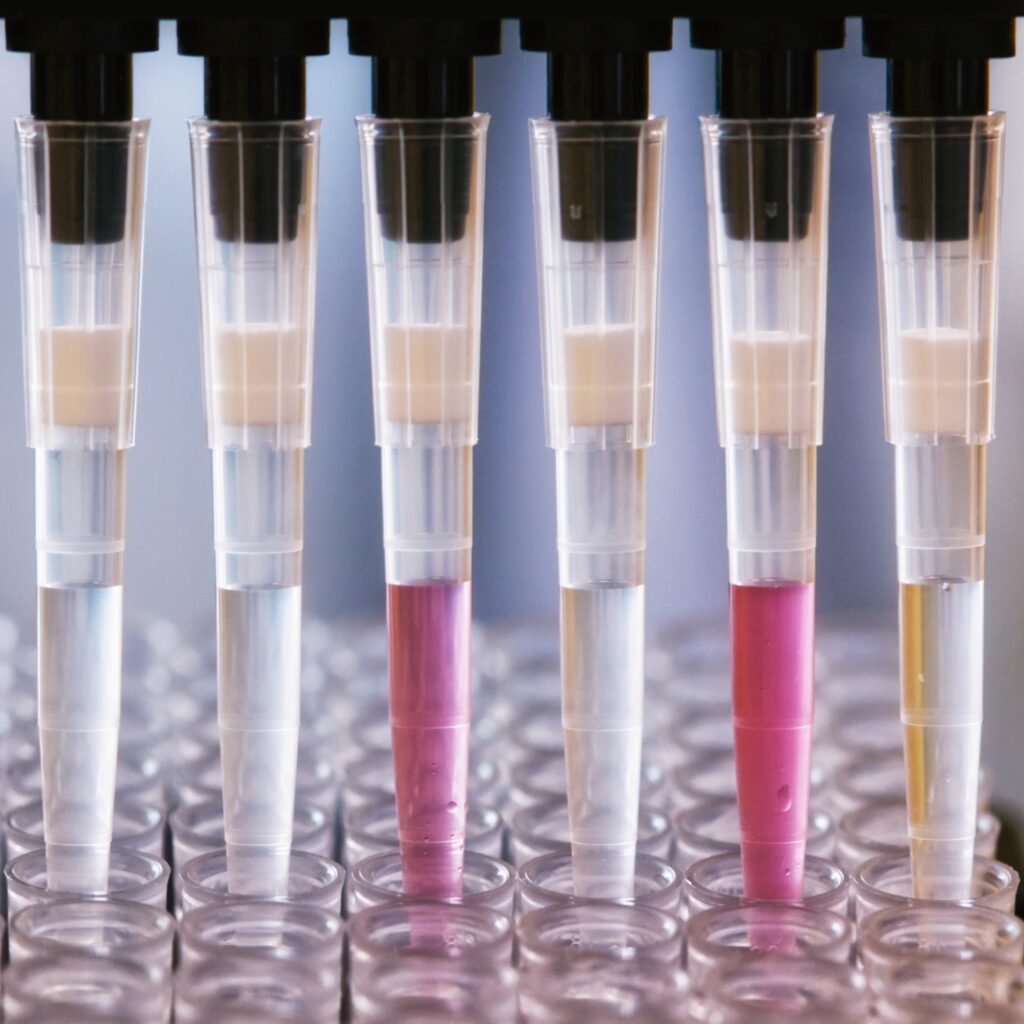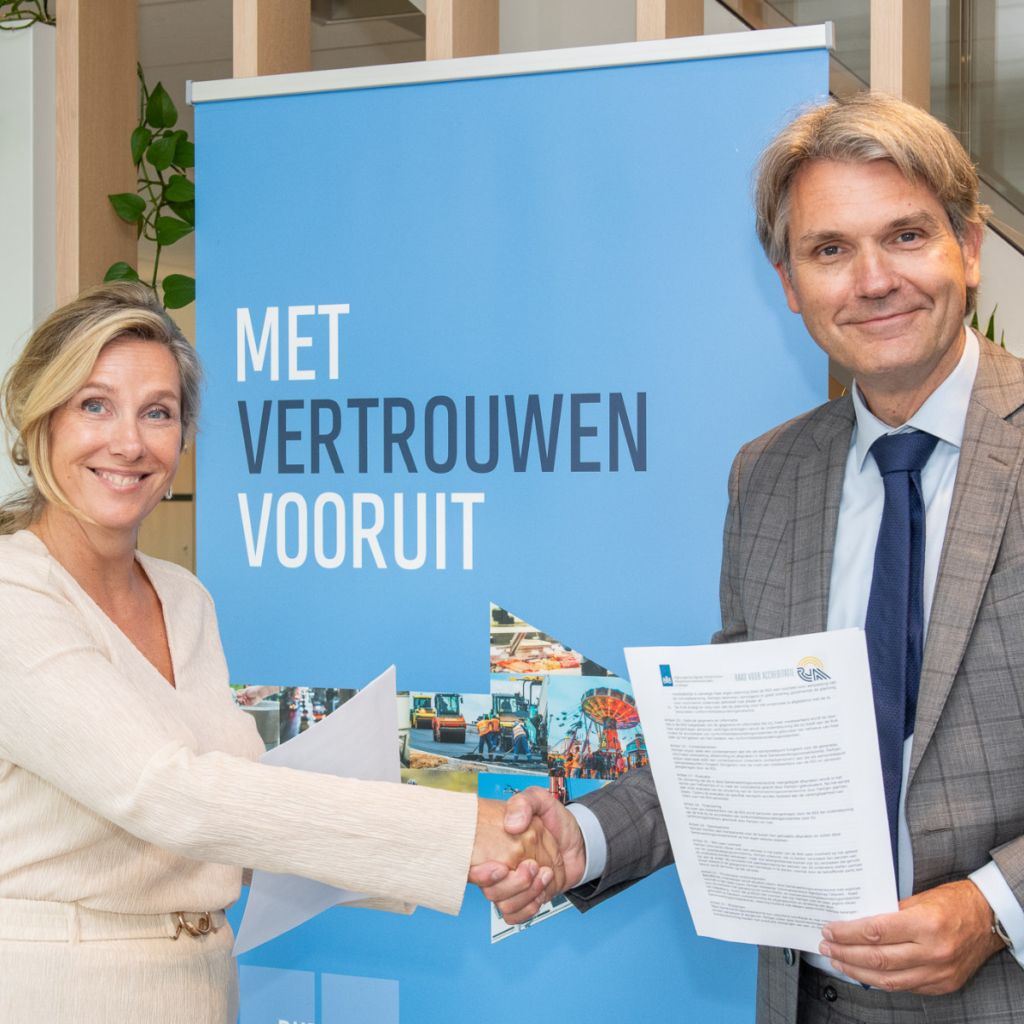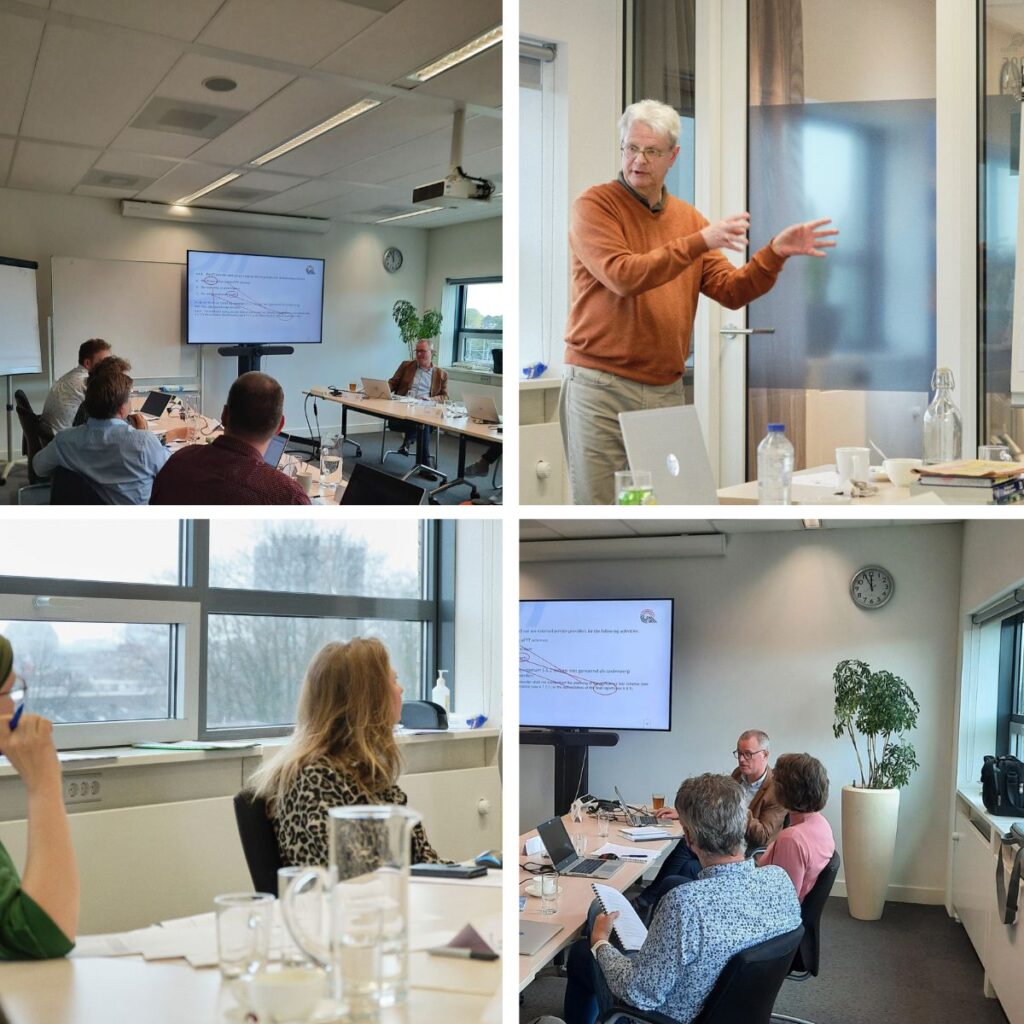The strategic update

In order to serve our clients as well as possible, the RvA is continuously developing. From accreditation against new standards to new collaborations.
In 2023, the first accreditation for the new standard EN-ISO/IEC 17029 was awarded. With this standard, it is possible for organisations to be accredited for validation and verification activities that deal with the reliability of information contained in claims or statements. This could encompass, for example, claims or statements in reports or declarations about energy savings, CO2 emissions, corporate social responsibility, a carbon footprint or a general statement about the properties of a product.
The 17029 standard currently plays a major role in the EU Emission Trading System (EU ETS). This standard will also play a role in reducing emissions in shipping. At present, this is not yet a strict obligation.
At the end of 2023, all accreditations issued for the verification of greenhouse gases were transferred to EN-ISO/IEC 17029. The RvA is a signatory of the EA Multilateral Agreement for this standard.
A possible new area of work for the EN-ISO/IEC 17029 is the verification of environmental annual reports according to the Corporate Sustainability Reporting Directive (CSRD). This European regulation was published in 2023 and offers the possibility for Member States to enable accreditation of verification institutions. The RvA is in contact with various parties, including the Ministry of Finance and the Ministry of Economic Affairs and Climate, to make this option possible for Independent Assurance Services Providers (certification bodies) in the Netherlands.
During 2023 we also worked hard on the development of accreditation of biobanks. Biobanks are used for the storage of biological material and are of major importance for medical and scientific research. The more data and material available, the better research can be done.
Three institutions are participating in the pilot and are in the preparatory phase for the accreditation assessment. In the meantime, a training and workshops of experts have taken place.
The Multilateral Agreement for Biobanks has been set up by EA and ILAC, for which the RvA can register after granting the first accreditation.

The call for the development of accreditation for the industrial cybersecurity standard ISO 62443 from 2022 has led to a development project for two institutions. This industrial cybersecurity standard protects vital processes and infrastructure against (digital) threats and is a specialisation of ISO 27001. This development project was started by the RvA in 2023 and is still in progress; the certification bodies need more time to properly complete their application for accreditation. We suspect that more work is already being done under this standard, but not yet under accreditation.
A cooperation agreement has been concluded with the Dutch Authority for Digital Infrastructure (RDI) for the joint execution of assessments within the framework of the Cyber Security Act (CSA). At the end of 2023, the first scheme was laid down by the European Commission in an Implementing Act.
The assessments of Cybersecurity-scheme for Common Criteria (EUCC) will be conducted in 2024. ENISA, the EU Agency for Cybersecurity, has been given a central role in the certification framework by preparing the technical basis for certification. The RvA cooperated in this via the EA.

New versions have been published of the accreditation standards for ISO 15189:2022 for medical laboratories and ISO 17043:2023 for organisers of proficiency testing. In 2023, the RvA set up the transition projects for these standards, the relevant institutions were informed and assessors were trained in the application of the new standards. The transition for the 15189 runs until the end of 2025, and that of the 17043 until the end of May 2026. Initially, there were problems at EU level with the harmonisation of the standards, which were partially resolved at the beginning of 2024. The RvA is confident that things will go smoothly.
For some time now, clients have been expressing their wish to the RvA for a shorter processing time for extension applications, for the extension of their scope. They have a significant interest in a shorter time to market, because their direct customers are demanding this. The RvA takes this wish seriously and has therefore taken action.
In 2019 and 2020, work was done on shortening processing times and in 2023, colleagues in the Operations department started working on a completely new approach in the form of a pilot, in collaboration with three clients.
The objective is to speed up processing and improve expectation management by reserving assessor capacity in advance. This is not without obligation for the client; they thus commit themselves to timely delivery of the necessary documents. We see that this approach leads to a significant reduction of the processing time.

In 2023, the project team will carry out a larger pilot with several clients. If this pilot succeeds, the new method will be implemented and made available to all clients.
In 2023, the RvA continued the Guidance Training courses for clients. During this training, new clients and new colleagues of existing clients are introduced to the RvA.
With these meetings, we want to make sure that clients understand the role and approach of the RvA and that they feel familiar and at ease with the RvA. We see that coming to our office noticeably lowers the barriers. The client gets in touch with us more easily.
A total of six training sessions were organised in 2023. Five sessions for employees of existing clients and one for employees of new clients. The training is highly appreciated by the participants.
